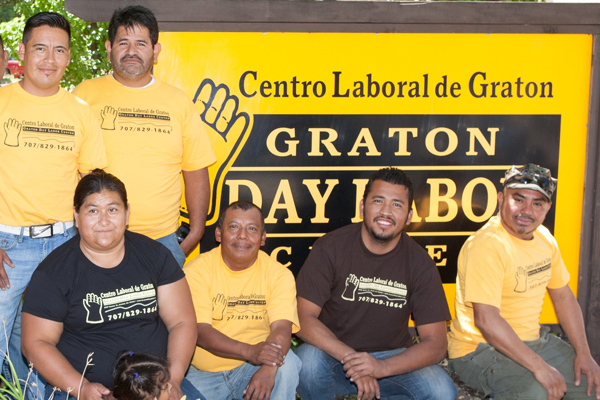Immigrant day laborers can be seen congregating on street corners and in communities throughout the Bay Area. The presence of these day laborers often causes great controversy despite the fact that large numbers of residents and contractors rely on these workers for a variety of jobs, particularly construction, painting, landscaping, moving, and housekeeping.
In many cities, local authorities and nonprofit organizations are pressed to address the problems caused by street-side job solicitation. Experience has shown that day labor centers that are developed through intentional, collaborative processes enjoy higher levels of public support and are able to provide an array of services that improve the lives of workers. The Zellerbach Family Foundation has therefore advanced a model for developing and managing day labor centers in which nonprofit organizations and local governments engage in collaborative planning processes with a variety of stakeholders (merchants, residents, community organizations, public agencies, and day laborers) to design solutions that address all parties’ concerns.
The Zellerbach Family Foundation supports six day labor centers as part of a grants cluster that aims to increase the economic self-sufficiency of low-income immigrants.
- Day Worker Center of Santa Cruz County – Santa Cruz County
- Graton Day Labor Center – Western Sonoma County
- Day Worker Center of Mountain View – Santa Clara County
- Monument Impact Day Labor Center – Contra Costa County
- Day Labor Center – Hayward and Oakland
- SF Day Labor Center and La Colectiva – San Francisco
These programs provide a structured and dignified setting for immigrant workers to find safe employment, develop job skills, improve wages, and become fully engaged members of the community. Services include:
- Job placement services and jobs development
- Job skills training
- Access to community health services
- Wage and hour law training
- Workplace safety training
- English as a Second Language instruction
- Leadership development training and participation in self-governance
- Opportunities for civic engagement and volunteering


